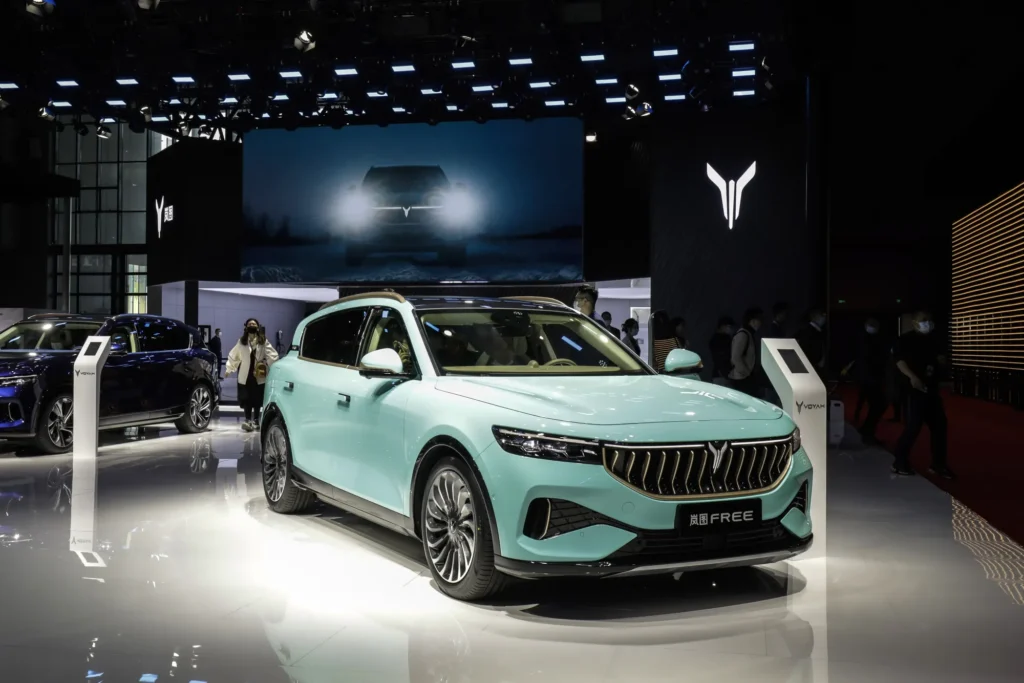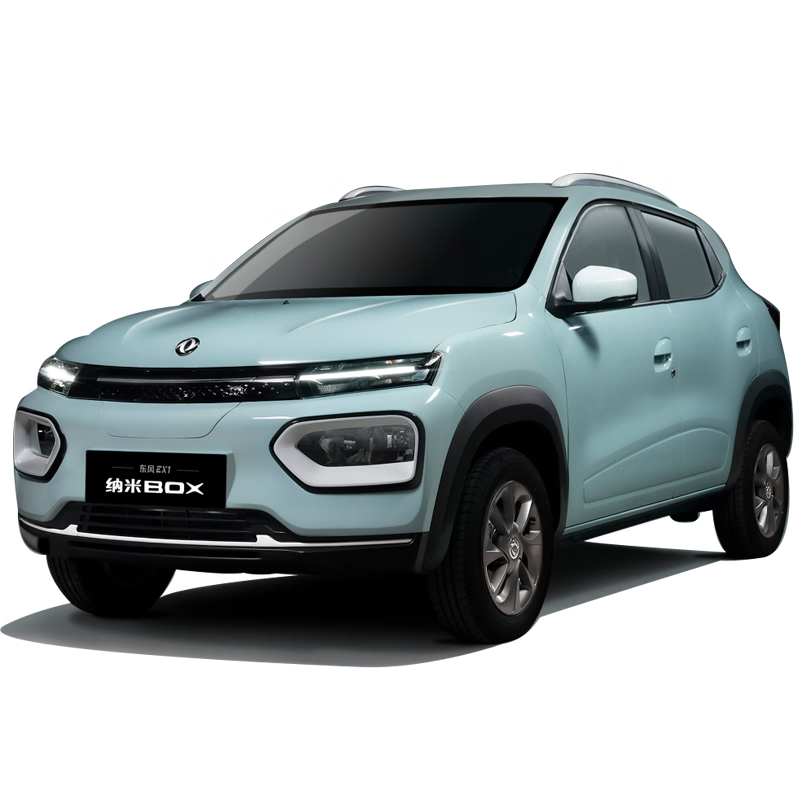The Dongfeng EV unit listing has become the centerpiece of a major restructuring plan announced by Dongfeng Motor Group. The Chinese state-owned automaker intends to take its main business private while spinning off its premium electric vehicle brand, Voyah, for a separate listing on the Hong Kong Stock Exchange. The decision highlights a significant shift for the company as it adapts to the growing dominance of electric vehicles in the global automotive market.
Why Dongfeng is Restructuring
Dongfeng Motor has faced several financial and operational challenges in recent years. In the first half of 2025, its net profit dropped by 92 percent despite a modest increase in revenue. Overall sales have fallen by about one-third since 2019. To make matters worse, the company has reported negative free cash flow in nearly every year since 2018, limiting its ability to reinvest and grow.
Amid this pressure, the Voyah brand has stood out. The premium electric vehicle division has achieved monthly sales exceeding 10,000 units for five consecutive months, proving it can deliver steady growth. This contrast between the struggling traditional business and the strong performance of the EV unit led to the decision to pursue a separate listing for Voyah.
The Deal Structure
According to the plan, Dongfeng’s parent company will buy out public shareholders and privatize the group. Investors will receive HK$6.68 per share in cash plus 0.3552608 shares of Voyah for each Dongfeng share they hold. The combined package is valued at HK$10.85 per share, an 80 to 82 percent premium over Dongfeng’s stock price before the announcement.
The deal has an overall value of about HK$55 billion, equivalent to roughly US$7 billion. Voyah itself is valued at around US$5.5 billion. This valuation equals approximately 1.5 times its expected annual sales, which is higher than the multiples assigned to some competing Chinese EV makers such as Nio, Xpeng, and Li Auto.
Investor Reactions
The stock market responded immediately to the news. Dongfeng’s shares surged by as much as 69 percent, reaching levels not seen since 2017. The rise reflected investor confidence in the restructuring plan and the attractive premium offered to shareholders.
For minority investors, the deal is particularly appealing. They will receive both immediate cash returns and shares in Voyah, giving them the chance to benefit if the EV brand grows further as an independent company.
Strategic Goals of the Dongfeng EV Unit Listing

The restructuring strategy behind the Dongfeng EV unit listing is designed to meet several objectives.
Unlocking Value
Voyah has become the most promising part of Dongfeng’s business. By listing it separately, the company can showcase its growth potential to investors without being overshadowed by the weak performance of the legacy operations.
Strengthening EV Focus
The global automotive industry is undergoing a rapid shift toward electric mobility. China, in particular, is pushing aggressive policies to promote new energy vehicles. By prioritizing its EV unit, Dongfeng positions itself in line with market trends and government goals.
Access to Capital
A separate listing in Hong Kong will give Voyah the ability to attract investors who are specifically interested in electric vehicle companies. This will help the brand raise funds more efficiently to support its growth and technology development.
Simplifying the Structure
Taking Dongfeng private allows the parent company to focus on restructuring its traditional operations without the constant scrutiny of public markets. This simplification may create room for bolder and longer-term strategies.
Next Steps for Dongfeng and Voyah
The success of the restructuring depends on shareholder approval. At least two-thirds of minority shareholders must vote in favor for the deal to proceed. If approved, Voyah will be listed through an introductory offering in Hong Kong, meaning its existing shares will begin trading without the issuance of new ones.

For Dongfeng, the challenge will be managing its non-EV business after privatization. Cost reductions, efficiency improvements, and possible consolidation of resources will be necessary to prevent the legacy operations from continuing to drag on the company’s finances.
Challenges and Risks
While the plan has been welcomed by investors, it also carries risks.
- Voyah faces intense competition from major players such as BYD, Tesla, and Nio, which already hold strong positions in the electric vehicle market.
- Ongoing price wars in China’s EV sector are pushing companies to cut prices, which may hurt margins and profitability.
- Dongfeng’s traditional combustion-engine business still faces shrinking demand and overcapacity. Without decisive restructuring, it could remain a significant financial burden even outside of public markets.
Industry Context
Dongfeng’s decision mirrors a broader trend in the Chinese auto industry. Electric vehicles have become a central focus, while older business models struggle under cost pressures and slowing sales. The government has also encouraged state-owned automakers to streamline operations, form partnerships, and spin off high-potential businesses to attract capital.
Other Chinese companies have followed similar strategies, separating their EV divisions from legacy businesses to unlock value and compete more effectively. Dongfeng’s move signals that the restructuring trend in China’s car industry is gaining strength.
Key Takeaways
- The privatization deal values each Dongfeng share at HK$10.85 through a mix of cash and Voyah shares.
- Voyah is valued at about US$5.5 billion, higher than many comparable rivals on a sales multiple basis.
- Investor confidence has risen, reflected in a sharp increase in Dongfeng’s share price.
- The strategy highlights a shift to focus on electric vehicles, simplify operations, and improve long-term prospects.
- Key risks include fierce competition in the EV market and the heavy restructuring burden of Dongfeng’s traditional business.
Conclusion
The Dongfeng EV unit listing represents a turning point for one of China’s most established automakers. By separating its premium electric vehicle brand Voyah from its struggling traditional operations, Dongfeng is betting its future on the electric revolution.
Investors appear optimistic, as shown by the stock rally after the announcement. The plan offers shareholders both immediate cash and the potential to benefit from Voyah’s growth as a standalone brand.
However, challenges remain. The EV market is highly competitive, and price pressures could reduce profitability. Meanwhile, the traditional side of Dongfeng’s business must be carefully restructured to avoid further losses.
If executed effectively, the restructuring could secure Dongfeng a stronger role in the global electric vehicle industry. If not, the company risks falling behind despite its bold efforts. The coming months will reveal whether this strategic gamble pays off.
Do Follow USA Glory On Instagram
Read Next – BAT CFO Soraya Benchikh Steps Down in Surprise Move






